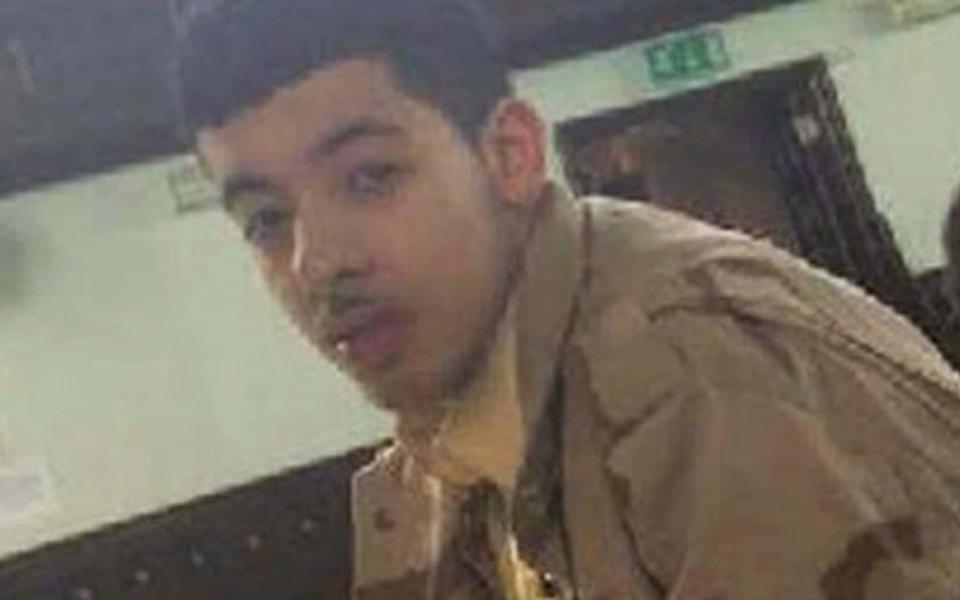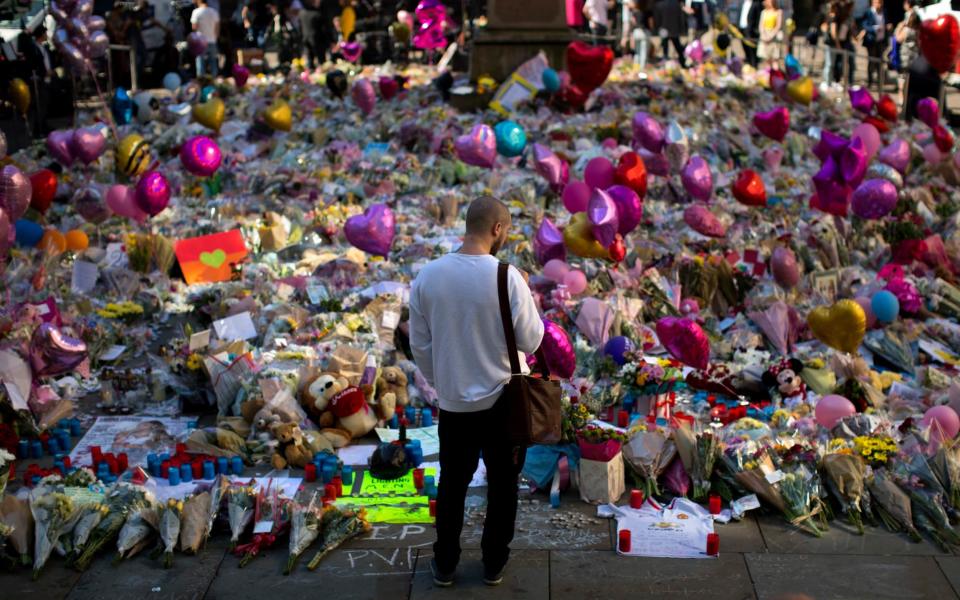Investigation launched into how Manchester bomber Salman Abedi slipped through security services' net

Missed chances to catch Salman Abedi will be investigated, the Home Secretary said as it was claimed that US officials warned MI5 earlier this year that he was planning an attack.
As the security services face growing questions over failures to stop Abedi killing 22 people in the Manchester Arena, Amber Rudd said it would be examined whether there were "signals" which were not picked up on.
Despite the terror threat being reduced from critical to severe on Saturday, she confirmed that members of Abedi's terror network could still be at large.

Ms Rudd's comments came after claims emerged that the FBI had told MI5 in January of this year that Abedi was part of a North African terror cell based in Manchester who had been looking to launch an attack.
US Federal agents had been monitoring Abedi since 2016 and passed on information that they had gathered from Libya, where his parents are from, and from intercepting his communications, it was said.
"Following this US tip-off, Abedi and other members of the gang were scrutinised by MI5. It was thought at the time that Abedi was planning to assassinate a political figure.
"But nothing came of this investigation and, tragically, he slipped down the pecking order of targets," a source told the Mail on Sunday.
Donald Trump, who faced a diplomatic incident when pictures from the investigation were released last week, later wrote on social media:
British Prime Minister May was very angry that the info the U.K. gave to U.S. about Manchester was leaked. Gave me full details!
— Donald J. Trump (@realDonaldTrump) May 28, 2017
Alongside any intelligence sharing, Abedi was reported to authorities by members of the local community at least five times in the five years before the suicide attack on the Manchester Arena.
Ms Rudd said: "Of course people will want to look afterwards to see whether there are signals that could have been learnt, how could we do this better. "
When the intelligence services use the term signals it normally refers to communications such as emails, but Ms Rudd refused to comment on what officers knew, saying it was " an ongoing operation".
On a day when Greater Manchester Police launched further raids across the city, the Home Secretary also revealed members of Abedi's terror network could still be at large.
She said: "There is - the operation is still at, really at full tilt in a way and so until the operation is complete we can’t be entirely sure that it’s closed."
Ms Rudd said that the Government is constantly reviewing what is needed in the fight against terror and the Conservatives have made a manifesto promise to appoint a Commission for Extremism.

She added: "We know we need to do more. We recognise the scale of the threat."
Ms Rudd said that in the crackdown on extremism the controversial temporary exclusions orders had been used for the first time since they were introduced in 2014, meaning British jihadists have been banned from returning to their home country.
Refusing to be drawn on how many times or where they were travelling from, she said: "It is no longer zero. It is part of the toolkit that a Home Secretary has so that we can keep people safe."
On Sunday afternoon Greater Manchester Police gained entry to a house in Moss Side using a controlled explosion and the street remained cordoned off last night.
The total number of people in custody over the attack rose to 14 when a 23-year-old man was arrested on suspicion of terror offences in Shoreham-by-Sea, Sussex. Two people who were arrested earlier in the week were later released without charge.



